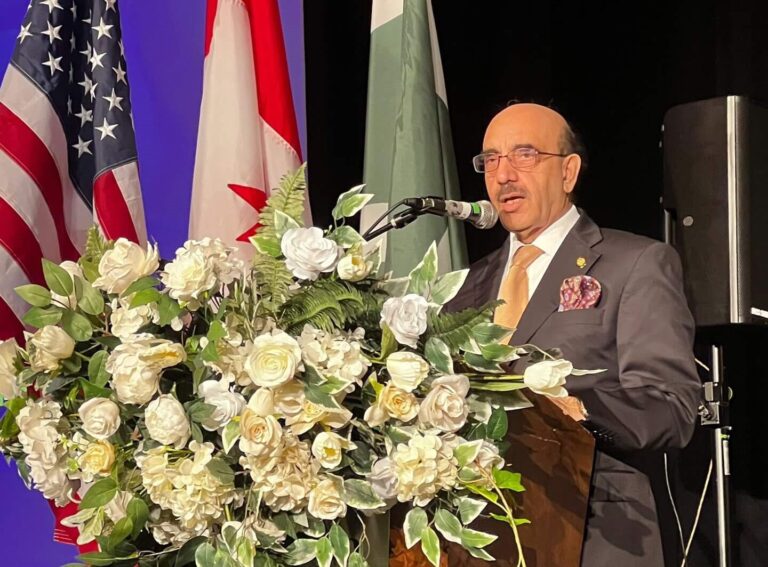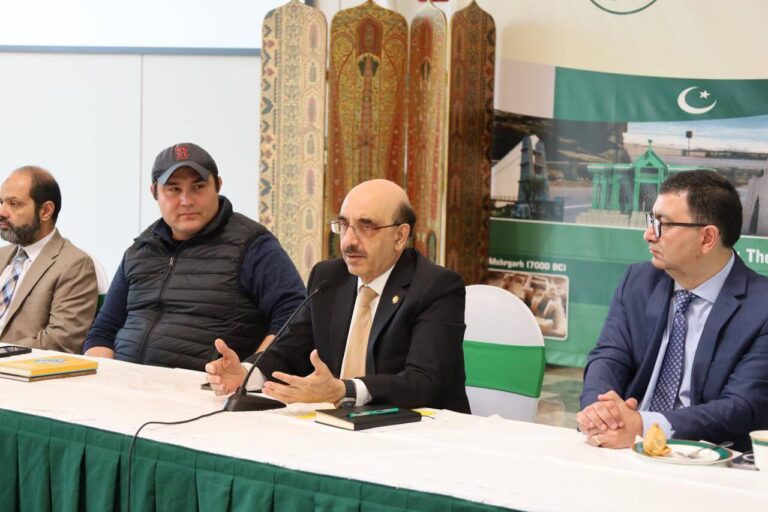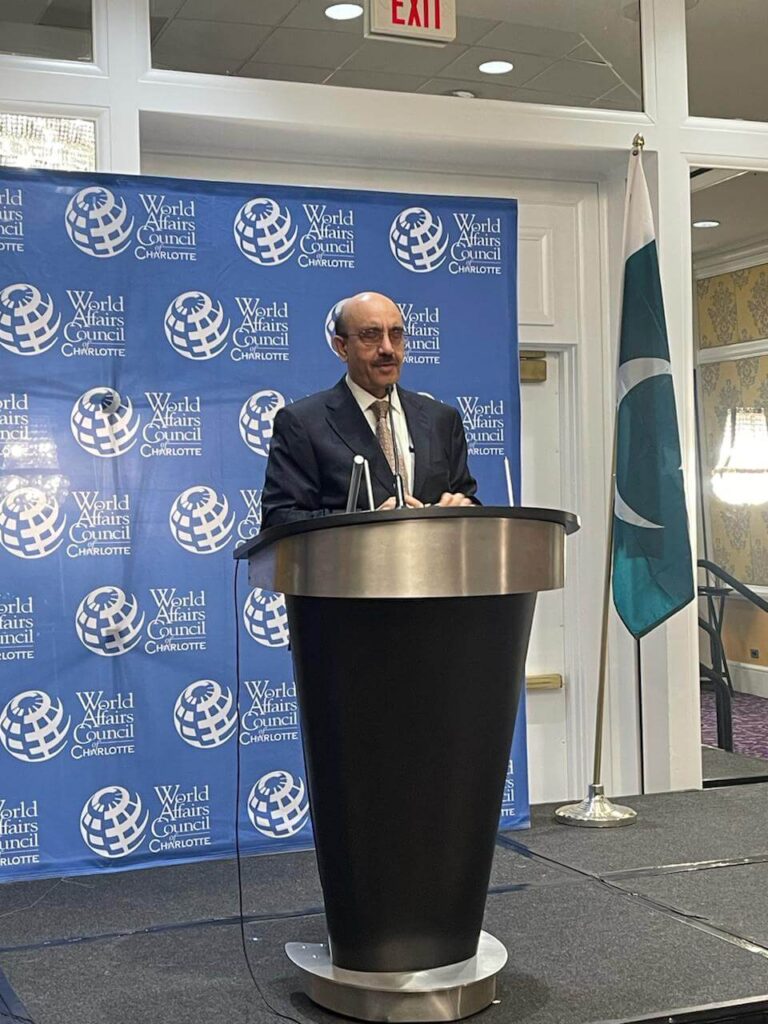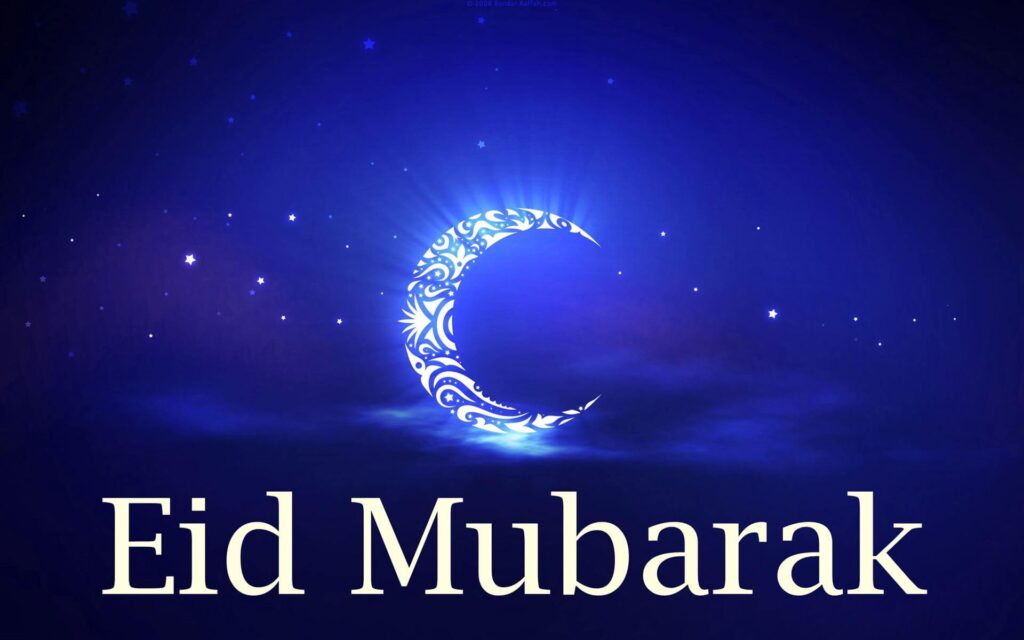Brief remarks by Ambassador Sherry Rehman on Eid Milad-un-Nabi
Distinguished guests,
Thank you for joining the Pakistan Embassy in its annual celebration of the Prophet’s (peace be upon him) birth and life. We Muslims hold his to be the most complete life ever, defined most by the virtues of mercy, grace, tolerance, fortitude, and forgiveness as its continuous themes.
Rabi-ul-Awal is the month in which Muslims all over the world celebrate Eid-e-Milad-un Nabi , the birthday of the Holy Prophet Muhammad (Peace be upon him).
“Woh nabiyon mein Rahmat laqab paney Walah !
Mureedeyn ghareebon ki bar laney,Walah , !
Woh apney paraaey ka gham khaney Walah!
Museebat mei ghairon kay kaam aaney Walah !”
“One who earned the title of blesser amongst the faculty of prophets!.
Redeemer of the yearnings of the poor!.
Who empathized with his kin and others.
Who came to the rescue & redemption of others.!”
The prophet’s (Peace be upon him), life and teachings are remarkable. Every quality of his personality is more inspiring than the last.
His life is marked by perfection, as a citizen, husband, father, grandfather, man of commerce, religious leader, statesman, and when the occasion required, as a military leader. At every turn in his eventful life, his qualities of mercy and tolerance shone through.
During his stay in Makkah, he was subjected to abuse, disrespect, and outright hostility. There is, however, not a single incident, where the Prophet (Peace be upon him), did not treat his tormentors with mercy, kindness, and tolerance in return.
I repeat one of the most famous examples of his tolerance and forbearance. We all have heard this story – but in today’s conflicted world, it bears continual re-telling, as a reminder of what our religion stands for, and what our Prophet (peace be upon him) enjoined on us through his behaviour. this is the incident of an old woman who threw garbage on him as he would pass by. One day she did not do so. The Prophet (peace be upon him), inquired if all was well with her. Upon being told the woman was unwell, he visited her and offered assistance until she got well.
Throughout his life, he won the hearts of people with his warmth, generosity and tolerance. Once a group of prisoners were brought before him. A woman in the group requested to speak with him, and introduced herself as the daughter of the famous “Hatim Tai,” renowned throughout Arabia for his hospitality. Upon hearing that she was the celebrated man’s daughter, the Prophet (peace be upon him) granted her freedom. The woman, however, said, “How can I go free while my people are still prisoners.” Thereupon, the Prophet (peace be upon him) released all prisoners. This was the quality of mercy we should talk about.
When Muslims returned to Mecca in victory, the Prophet (peace be upon him) forgave all those who previously abused or mistreated him. He even forgave one of his greatest enemies, Abu Sufyan, and declared Abu Sufyan’s home a sanctuary. A poet, Kaab-ibne-Zuhair, who defamed the Prophet (peace be upon him) with his poetry and oratory, sought forgiveness. The Prophet (peace be upon him), forgave him, upon which Kaab recited a “Naat” (song of praise for the Prophet (Peace be upon him). In return, the Prophet (peace be upon him) honoured him with his own “Abaa” (traditional Arab robe).
In an age of ignorance and among a notoriously ignorant people, the Prophet (peace be upon him) stressed the importance of education and learning. He said, “Seek after knowledge and wisdom, even if you have to go to China,” China then being the farthest known place from Arabia. When some prisoners, taken in the battle of Badr, could not pay their ransom, the Prophet (peace be upon him) asked them to educate ten children each to earn their freedom. I tell this story for our new generation to understand the centrality of education in the Islamic pantheon of virtues, and its distance from ignorance.
The Prophet (peace be upon him) was famous for showing tolerance and compassion for followers of other faiths. They were free to practice their religions. When a delegation of Christians visiting from Yemen did not have a place to pray, he offered them the mosque for the purpose. He negotiated the constitution of Madina with all the stakeholders, including Muslims and non-Muslims. The first article of the constitution stated that the inhabitants of Madina, regardless of their religion, race, and ancestry, would live in peace and harmony and respect and protect each other’s rights.
Prophet Muhammad’s (peace be upon him) most powerful legacy is the establishment of explicit rights for women. He said, “The best amongst you is one who treats women with kindness and gives them their rights and treats them with justice.”
His treatment of women is characterized by chivalry, graciousness, love, and respect. He revolutionized the status of women in the society. He encouraged the role of women outside the household also. Muslim women took part in battles, providing nursing services to the injured. They owned and ran businesses. The Prophet’s (peace be upon him) first wife, Khadija, was a business woman running a successful commercial enterprise which reached as far as Syria. The Prophet (peace be upon him) used to help her in the business.
In the Arab society of that time which prized sons, he took pride in being the father of four girls and gave indiscriminate love and affection to his daughters.
Today’s stereotypes of Muslim women being confined to the four walls of the home, have nothing to do with the Prophet’s (peace be upon him) teachings. He gave to the world a code of conduct that ensures equal opportunities for everyone irrespective of cast, colour, creed, and gender.
These values of honesty, integrity, morality, tolerance and justice, as taught and practiced by the Holy Prophet (peace be upon him), have been a source of inspiration and guidance, for countless people, regardless of age, race, gender, and religion. They should today define not just our faith, but the quality of our conduct.
I quote Allama Iqbal, who said:
“Ki Muhammad sey wafa tum ne tau hum terey hain,
Yeh jahan cheez hai kya, lauh o qalam terey hain”
-by Allama Iqbal
“If you are faithful to the Prophet (peace Be Upon Him), then I (God), am yours,
This world is nothing; the heavenly tablet and the pen are yours.”
We would all do well to try to emulate the Prophet (peace be upon him) in our daily lives. As we grapple with the challenges confronting us, particularly in our own region and country, we should reflect regularly to see if our behaviour and attitudes are worthy of his teachings and practices. We would all be better human beings if we pledge ourselves to live by his word and action.
February 01, 2013
Washington DC





